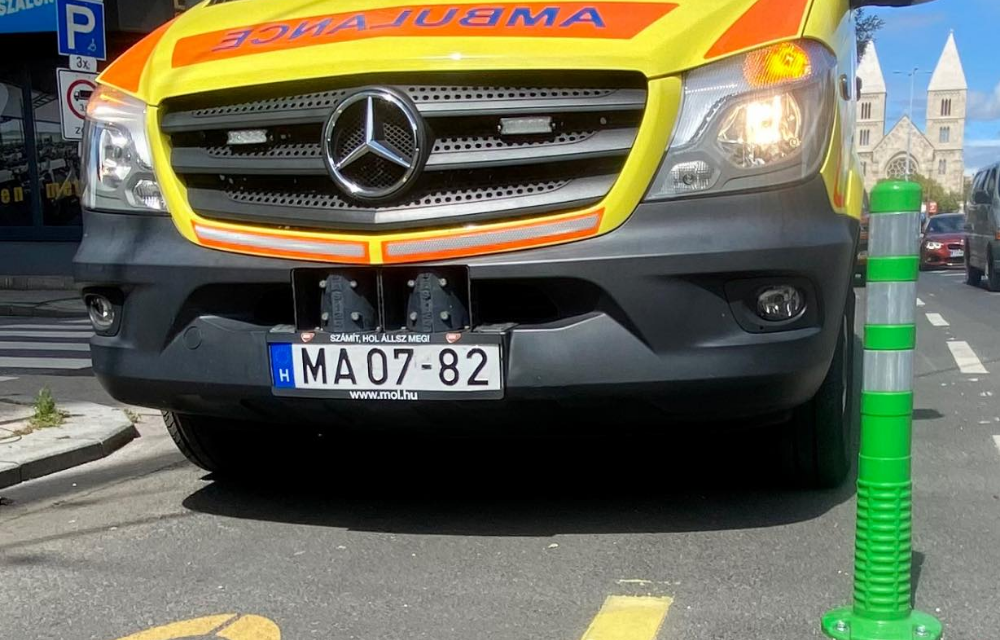The solution with plastic columns on Üllői út and Váci út has already been criticized by many, but it has now been revealed that it was extremely expensive, but all this does not prevent the mayor from spending new sums on his "improvements".
The protected bicycle lanes of Üllői and Váci úts were built in the capital for almost one hundred million forints, Budapest Közút announced in response to the question of how much the bicycle lanes protected with bollards cost.
The cost of the approximately two-kilometer section on Váci út in both directions was HUF 26 million. This contains
- the road construction,
- the traffic engineering design,
- the red pavement painting
- and also the plastic pillars, the so-called bending bollards.
On Üllői út, a bicycle lane has also been established in both directions, but this is already a total of five kilometers long. The cost of this already reached HUF 70 million, which also includes the above items.
So, the protected bicycle lanes created on Váci út and Üllői út consumed a total of HUF 96 million.
Budapest Közút probably also realized that spending almost a hundred million can seem very expensive for a few kilometers of bicycle paths, so they pointed out that a significant part of this expenditure would have occurred even if bicycle lanes were not established on these road sections.
In addition, it turned out that the works on Üllői út have not yet been completed, Világgazdaság pointed out. The painting of the safe bicycle lane, its signage, the red coating and the placement of bollards have been completed, except that the pavement markings of the pedestrian crossings on the affected section still need to be renovated, but this is still ongoing.
Világgazdaság also asked Budapest Közút whether they plan to create additional bicycle lanes, and if so, exactly where, and whether there will be a bollard-delimited lane between them. The company's press department responded by saying that the creation of safe bicycle lanes is part of a concept.
Planning, preparation and implementation are continuous, but the possibility of implementation "depends to a large extent on the capital's known financial situation".
During this time, they could have thought that Budapest has been operating on a current account loan since the middle of the summer - added Világgazdaság, and then highlighted: by the end of July, the capital's account was already minus eight billion forints, and it will get even worse, since the budget of the municipality is expected to close in August with a minus of forty billion forints.
Therefore, it is somewhat surprising that in this financially drained period, the city administration still found an unnecessary hundred million forints to create bicycle lanes, even though the promotion of bicycle traffic is certainly not among Budapest's ten most pressing problems at the moment.
Especially since their implementation has already caused many tensions. The bike lane on the small circuit, which is used quite lightly, makes it difficult for motorists. And the bollard solution set up on Üllői and Váci út also blew the fuse of the ambulances and taxi drivers.
What's more, it was the first time that the capital's urban planning expanded the bicycle road network at the expense of public transport - a protected bike path was created in place of the existing bus lane.
This also caused the disapproval of the transport industry. For example, Dávid Vitézy, the former general manager of BKK and former secretary of state for transport, publicly criticized the city administration for the decision. BKK, on the other hand, claims that thanks to the new bicycle lanes, congestion time has decreased by 6 percent.












